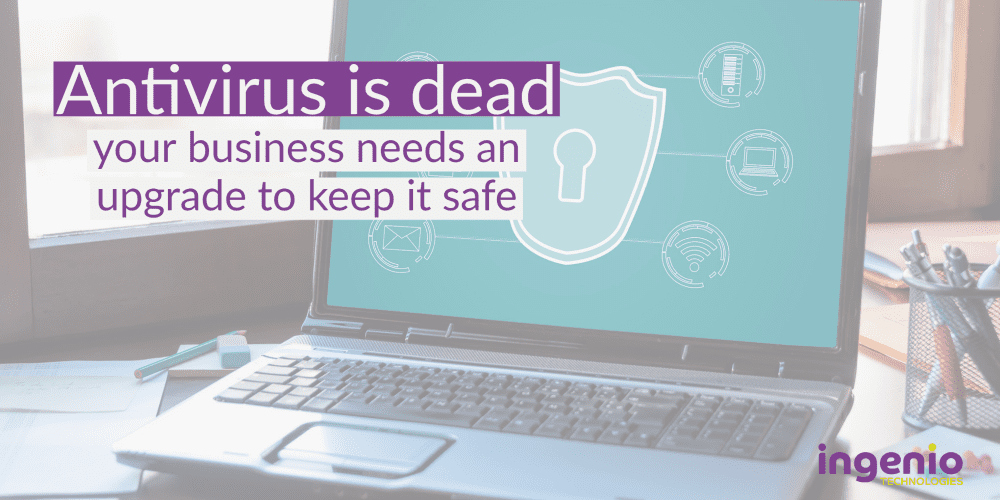Antivirus, as a minimum, is the most basic level of cyber security. If you are not aware of its function, antivirus is designed to detect and remove viruses and other kinds of malicious software (Malware).
Every device, whether that’s your work laptop or personal tablet, must contain some form of antivirus. Most people have heard of the big names, such as Norton and McAfee, there are many different products to choose from, you just have to decide what works for your budget.
Back in the 1980-1990 period, Antivirus was the first protection against computer viruses. As technology has grown and adapted, so have the viruses. Cyber criminals are becoming so much more evolved, nowadays even Antivirus is struggling to keep up with the advanced malware threats.
What is traditional antivirus?
Traditional antivirus is becoming obsolete and with the nature of cyber criminals changing over the years, it is becoming less reliable than what it once was. Antivirus works on a database system that is limited to how often it’s updated. Viruses get added to this database as they are discovered, however, someone has to be unlucky and get infected first. This means it can’t always offer foolproof protection to your business and should be used in conjunction with other security measures.
Listed below are some of the reasons why Antivirus only provides the basic level of protection:
Encryption
Certain types of malware are exchanged through data which is encrypted so it can’t be detected by antivirus. Cyber criminals will create an encrypted connection between the user’s device and the web server so all communication between the two goes undetected.
Morphing Malware
Yes, it is as scary as it sounds, Antivirus uses set rules to seek out known malware and there is a type of malware that continually changes to avoid being detected. The malware program changes its data within the malicious file so it stays hidden.
Fileless
Malware can now be installed onto your computer without actually installing within the hard drive, this is because it operates within the memory. Antivirus is therefore unable to detect the known malware files because they ‘don’t exist’.
Malware in document
Malware can be hidden within malicious documents that are designed to exploit vulnerabilities within that device. This type of malware remains undetected because it uses confusing techniques to disguise itself from Antivirus.
Upgrade your antivirus to EDR for next-level protection
You can no longer rely on antivirus to keep your business data completely safe. There is now a more innovative solution that has been created to detect and respond to cyber attacks called Endpoint Detection and Response (EDR).
Endpoint Detection Response (EDR)
EDR works on all smart devices and laptops/PCs (also known as endpoints). EDR is a security solution that collects data on each device 24/7. The data is collated and analysed to spot any issues or potential threats and this is all done automatically within the blink of an eye. If anything is found, it will isolate the machine from the rest of the network, allowing security teams to respond accordingly and protect your business.
Typical EDR functions include:
- Monitor and collect event data from devices
- Analyse data to identify threats
- Automatically respond to identified threats
- Any malicious activity will be passed to the security teams to analyse threats and put mitigations in place
EDR is becoming the go-to addition/replacement to antivirus and as such is being utilised by companies worldwide. EDR is proving itself to be a very reliable and effective tool, helping many businesses that have been subject to a cyber attack and protecting them from serious harm.
If you are serious about protecting your business from the latest cyber threats and want to utilise EDR to keep you safe and secure, contact our cyber security experts today on 01273 806211 or email [email protected]


